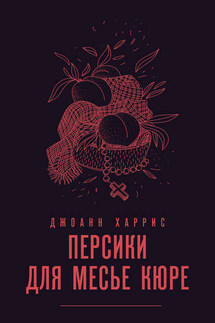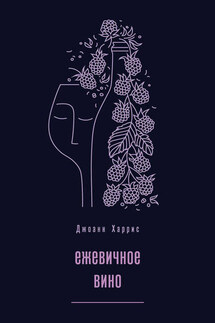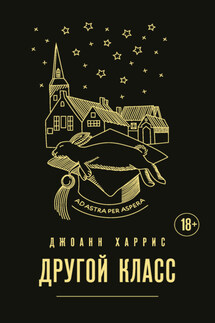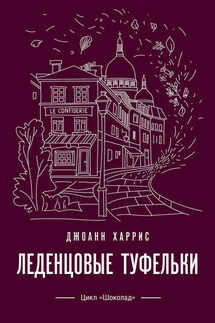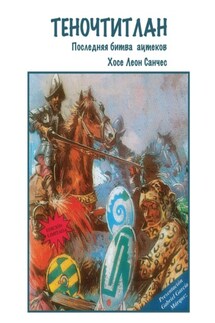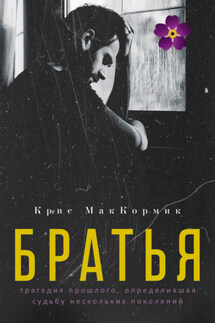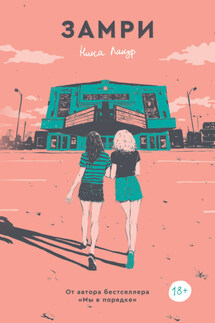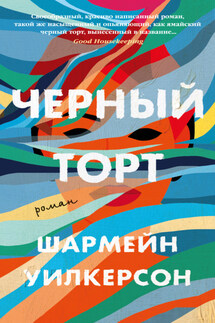Five Quarters of the Orange / Пять четвертинок апельсина - страница 37
I swam back to the bank, missing the last two pillars and drifting two hundred meters down toward the Angers road before I managed to steer myself out of the current-more like a dog than ever, a mad brown dog with its leash twined crazily around my frozen legs. The whole episode, I guessed, had taken maybe ten minutes.
I forced myself to rest awhile, feeling the slight warmth of the sun’s first rays on my face, drying the mud of the Loire against my skin. I was trembling with cold and exhilaration. I counted the money in the purse – there was certainly enough for a cinema ticket and a glass of juice. Good. Then I walked upstream to where I had left my clothes. I dressed – an old skirt and a red sleeveless man’s shirt cut down to make a smock. My clogs. I did a perfunctory check on my fishing traps, tipping out the small fry or leaving it in place as bait. In a cray pot by the Lookout Post there was the unexpected bonus of a small pike – not Old Mother, of course – and this I slid out into the bucket I had brought from the house. Other catches: a mess of eels from the muddy flats beside the big sandbank, a sizable bleak from one of my catch – all nets. I piled them all into the bucket. They would be my alibi if Cassis and Reine were already awake. Then I made my way home through the fields as unobtrusively as I had come.
I did well to bring the fish. Cassis was washing under the pump when I got back, though Reinette had warmed a basin of water and was dabbling delicately at her face with a soapy washrag. They looked at me curiously for a moment, then Cassis’s face relaxed into an expression of cheery contempt.
“You never give up, do you?” he said, jerking his dripping head at the fish bucket. “What you got in there, anyway?”
I shrugged.
“Couple of things,” I said carelessly. The purse was in the pocket of my smock, and I smiled inwardly at its comforting weight. “Pike. Just a small one,” I said.
Cassis laughed.
“You might catch the small ones, but you’ll never catch Old Mother,” he said. “Even if you did, what’d you do with it? A pike that old wouldn’t be any good to eat. Bitter as wormwood and full of bones.”
“I’ll catch her,” I said stubbornly.
“Oh?” His tone was careless, disbelieving. “And what then? You’ll make a wish, will you? Wish for a million francs and an apartment on the Left Bank?”
I shook my head mutely.
“I’d wish to be a movie star,” said Reine, toweling her face. “To see Hollywood, and the lights, and Sunset Boulevard, and to drive in a limousine and to have dozens and dozens of dresses…”
Cassis gave her a brief look of scorn, which cheered me immensely. Then he turned to me.
“Well, what about it, Boise?” His grin was brash and irresistible. What’s it going to be? Furs? Cars? A villa in Juan-les-Pins?“
I shook my head again.
“I’ll know when I’ve caught it,” I said flatly. “And I’ll get it too. See if I don’t.”
Cassis studied me for a moment, the grin sliding from his face. Then he made a little noise of disgust and turned back to his ablutions.
“You’re something, Boise,” he said. “Really something, you know?”
Then we raced off to finish the day’s chores before Mother woke up.
12
There is always plenty to do on a farm. Water to bring in from the pump, leaving it in metal buckets on the cellar tiles so that the sun doesn’t warm it, goats to milk, the pail to be covered with a muslin cloth and left in the dairy, the goats then taken to the pasture so that they don’t eat all the vegetables in the garden, hens and ducks to feed, the day’s crop of ripe strawberries to pick, the baking oven to stoke even though I doubted Mother would be doing much baking today. The horse, Bécassine, to be let out into the pasture and fresh water brought to the troughs. Working at maximum speed it took us the best part of two hours to finish, and by the time we did the sun’s heat was gaining, the night damp already steaming off the baked-earth paths and the dew drying on the grass. It was time to go.
